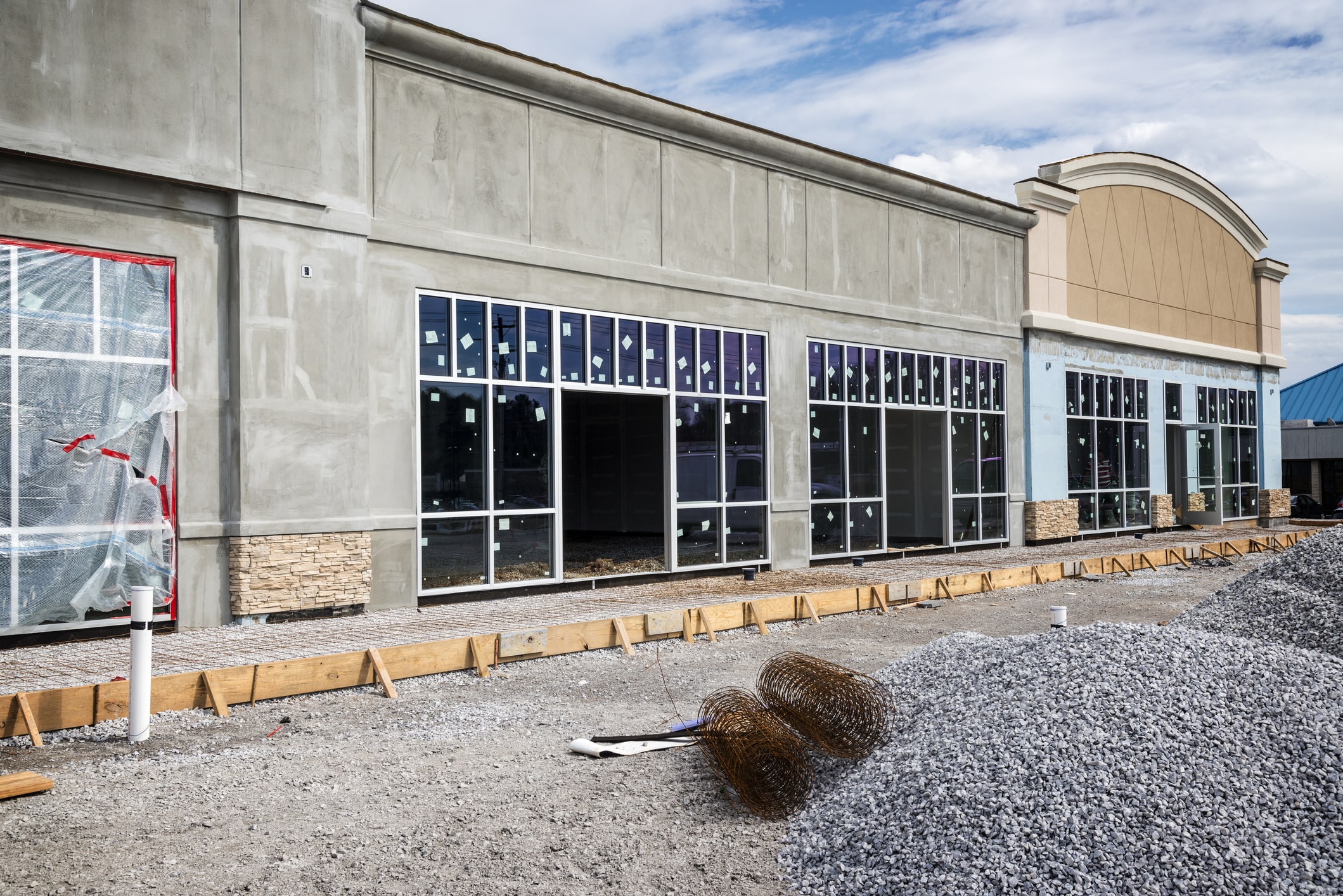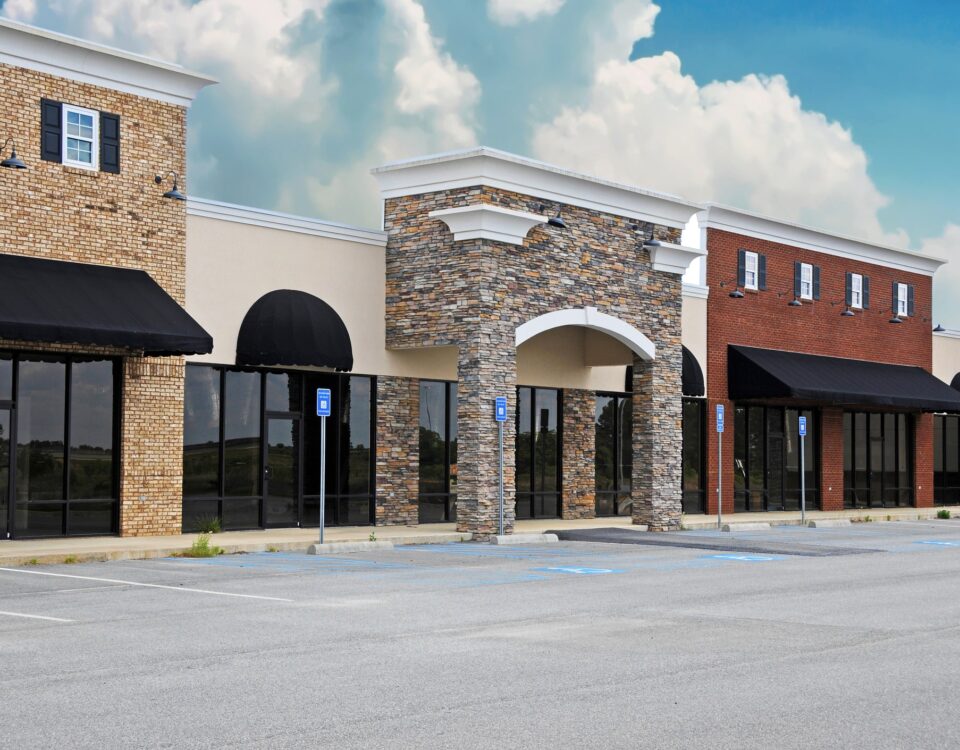Stracoa Blog
Building a Strong Foundation with your Commercial Builder
Stracoa Construction Services

At Stracoa Construction, we understand that a strong foundation is the bedrock of any successful commercial building project. As an experienced commercial builder, we know that the foundation isn’t just about concrete and rebar; it’s about creating a solid base that supports your business goals and aspirations. Let’s talk about the key considerations for commercial building foundations, from standard specifications to helpful tips for ensuring a sturdy and reliable structure.
Concrete Foundations
Concrete foundations are the prevailing choice for most commercial buildings. They offer exceptional strength, durability, and versatility to accommodate various soil conditions and structural designs. But what exactly goes into a typical concrete foundation for a commercial building?
Key Components of a Commercial Foundation:
- Footings: First and foremost, footings are the wide, reinforced concrete bases that distribute the building’s weight evenly across the soil. They are crucial for preventing settling and ensuring stability. A commercial builder typically excavates deep trenches and reinforces them with steel rebar before pouring the concrete.
- Foundation Walls: Next, these vertical walls rise from the footings, forming the perimeter of the basement or crawlspace. They provide structural support for the building’s walls and roof. Commercial foundation walls are often thicker and reinforced with more rebar than those in residential construction due to the increased loads they must bear.
- Slab-on-Grade: In some cases, commercial buildings may utilize a slab-on-grade foundation, where a thick concrete slab is poured directly on the ground, serving as both the foundation and the floor for the ground level. This is common in warehouses, retail spaces, and other structures without basements.
Essential Elements Within the Foundation:
- Plumbing: Before pouring the concrete, a commercial builder installs rough-in plumbing for water supply and drainage within the foundation walls or under the slab. This includes pipes for restrooms, kitchens, and any specialized equipment requiring water connections.
- Electrical: Electrical conduits and wiring for essential services are also embedded in the foundation. This ensures that electrical systems are properly grounded and protected.
- Vapor Barrier: A vapor barrier is typically installed to prevent moisture from seeping through the concrete and into the building. This helps maintain a dry and healthy indoor environment.
- Insulation: Depending on the climate and building design, insulation may be added to the foundation walls to improve energy efficiency and reduce heating and cooling costs.
Weather Watch
Pouring a concrete foundation is a weather-sensitive process. Here are a few conditions that might cause delays:
- Rain: Excessive rain can saturate the soil, making it unstable and difficult to compact properly. Additionally, rain can wash away the cement paste from freshly poured concrete, weakening its strength.
- Freezing Temperatures: Concrete requires time to cure and gain strength. Freezing temperatures can disrupt this process, causing the water in the concrete to freeze and expand, leading to cracks and structural weaknesses.
- Extreme Heat: Conversely, extremely hot weather can cause concrete to dry too quickly. This can lead to shrinkage cracks and reduced strength. A responsible commercial builder takes measures to keep the concrete moist during curing in hot conditions, such as covering it with plastic sheeting or spraying it with water.
Choosing the Right Foundation
Selecting the appropriate foundation is critical for the long-term stability and performance of your commercial building. Here are a few factors to consider:
- Soil Conditions: Different soil types have varying load-bearing capacities and drainage characteristics. A geotechnical investigation is essential to assess the soil and determine the appropriate foundation design.
- Building Size and Design: The size, weight, and intended use of your building will influence the type and depth of the foundation required.
- Local Building Codes: Commercial builders must adhere to local building codes, which specify requirements for foundation design and construction.
- Budget: Different foundation types have varying costs. Discuss your budget with your commercial builder to determine the most cost-effective solution that meets your needs.
Questions for Your Commercial Builder
When planning your new commercial building, it’s essential to have open communication with your builder about the foundation and flatwork. Here are some key questions to ask:
- Which type of foundation is most suitable for my building and site conditions?
- Will I have footings? If so, how deep will the footings be?
- What measures will you take to ensure proper drainage and waterproofing?
- Can you explain the type of concrete mix will you use, and what is its psi?
- What is the estimated timeline for completing the foundation work?
- Do you offer any warranty on the foundation?
If you’re planning a new commercial building project, contact Stracoa Construction today. We’ll work with you to design and build a solid foundation that supports your business goals and provides a lasting platform for success.





